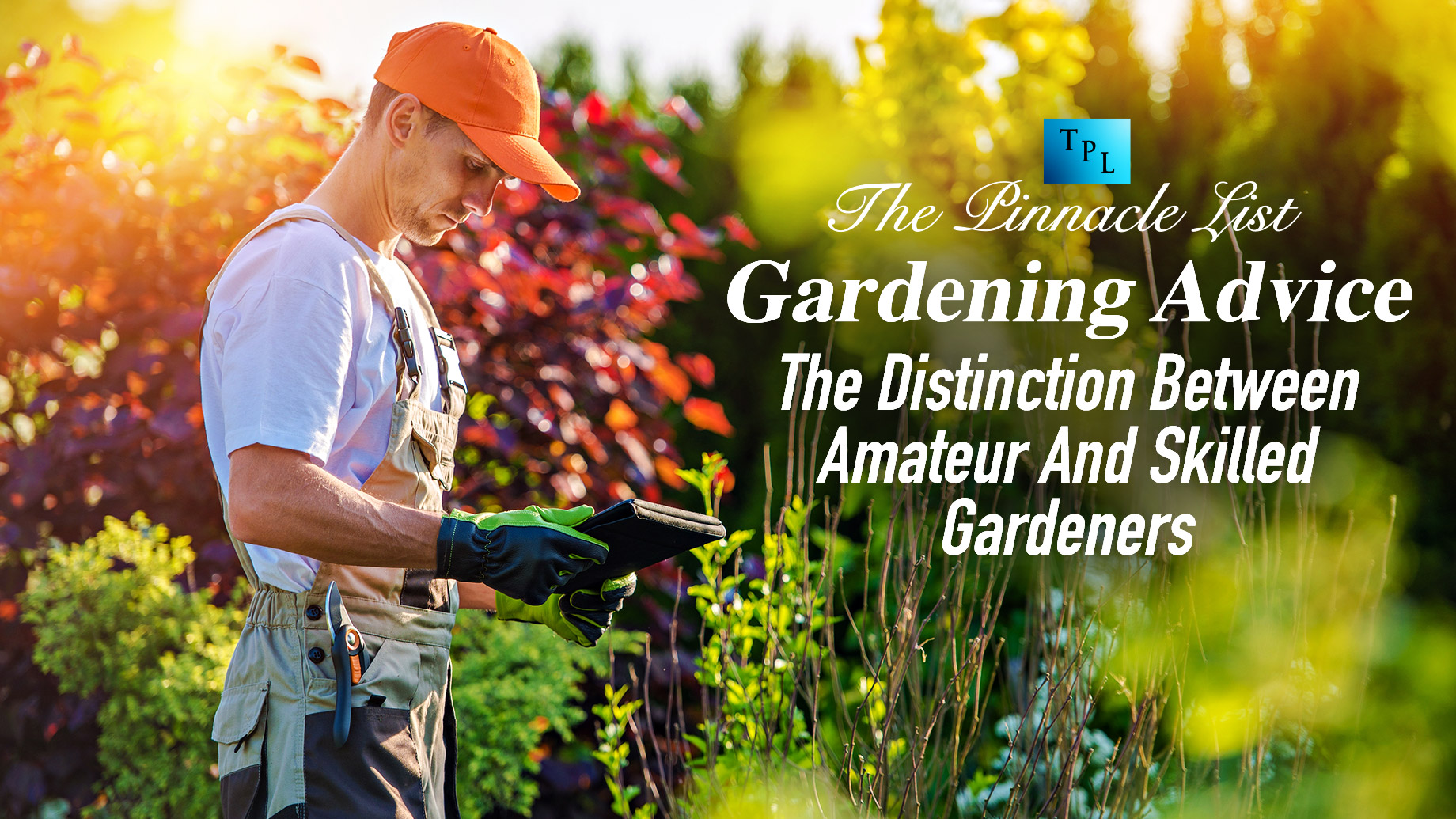
Are you interested in becoming a skilled gardener? Have you been toiling away in your garden with little substantial results? As an amateur, it can be challenging to understand the difference between gardening success and failure.
In this article, we’ll explore the distinct traits that distinguish amateurs from skilled gardeners – giving you the knowledge and tools to cultivate a beautiful landscape successfully. Following these tried-and-tested tips will make gardening manageable for amateur green thumbs. Read on for advice on how to make gardening more accessible, more efficient, and enjoyable.
What are the differences between amateur and skilled gardeners?
Amateur and skilled gardeners may have similarities in their love for gardening, but they demonstrate different practices and approaches when tending to their gardens. Amateur gardeners may need to know more about plant science, soil composition, and general horticulture principles. They may need help managing pest and disease issues because these practices require more developed skills.
Conversely, skilled gardeners possess expertise in soil fertility, plant botany, insect biology, and many other aspects of gardening. They often use holistic methods for controlling pests that help ecosystems balance without being destructive to nature or the environment. Check this out https://anestwithayard.com for more info.
Ultimately, amateur and skilled gardeners differ in their knowledge base and approach to gardening – while amateurs tend to be less experienced with a more traditional method of planting and caring for gardens, skilled gardeners lean on scientific knowledge more often while utilizing sustainable methods.
What are the benefits of becoming a skilled gardener?
Becoming a skilled gardener offers many benefits. You can save money by understanding when and how to plant specific vegetables or flowers and how often to water your garden. In addition, you can build an enjoyable hobby out of gardening – gaining increased knowledge and a sense of pride in growing something beautiful. Additionally, you can make a living out of gardening with a suitable skill set.
Skilled gardeners have tremendous success due to their increased knowledge of botany, soil quality, and pest management. They can better identify problems before they become too severe and know which plants will thrive under various conditions – saving time, energy, and resources while producing higher yields than amateurs.
How can you cultivate the skills of a skilled gardener?
Becoming a skilled gardener requires patience, dedication, and the willingness to learn more. Here are some tips on how you can cultivate these skills:
- Read books and articles on gardening: Gaining knowledge of plant science, soil composition, and other topics relevant to horticulture will help you become a better gardener.
- Attend lectures or workshops at local nurseries or garden centers: This is an excellent way to learn from experienced gardeners who have been in the field for years.
- Join a gardening club: You can get advice from other members and make friends with like-minded individuals.
- Utilize online tutorials: Many helpful videos and websites offer step-by-step instructions for gardeners of all levels.
- Experiment with different methods: Try various techniques to see what works best for you and your plants.
By following these tips, you can quickly develop the skills necessary to become a skilled gardener. Dedication and an open mind can turn gardening into a rewarding and enjoyable hobby lasting for years.
What techniques can you use to ensure successful gardening results?
To ensure successful gardening results, there are a few techniques that you can use.
One of the most important things to remember is that gardening requires patience. It may take time for plants to establish themselves, and it takes regular care and maintenance to ensure they stay healthy.
Another technique is to understand which conditions are best for your plants – this includes understanding the type of soil, water, sunlight, and temperature that each plant needs to thrive. Having a good understanding of all these factors will help you give your plants what they need.
Additionally, it’s important to use sustainable methods when dealing with pests or diseases. Natural solutions like companion planting or introducing beneficial insects can be more effective than harsh chemicals that can damage the environment.
Finally, make sure you regularly monitor your garden and learn to identify problems early on. It will ensure that issues are manageable and can help you take the necessary steps to remedy them.
Tips and tricks for beginner gardeners
If you’re starting with gardening, here are a few tips and tricks to help make your experience more accessible:
- Start small: If this is your first time gardening, start with a smaller plot or container garden, and it will help you become familiar with the basics before committing to a larger space.
- Choose easy-to-care-for plants: Opting for hardy plants that don’t require too much attention will ensure you don’t get overwhelmed with care needs.
- Select the right location: Find an area of your yard or home with enough light and good drainage for optimal growth.
- Utilize natural pest control: If you encounter any pests, research natural solutions to avoid using chemical treatments.
- Don’t be afraid to ask questions: Reach out to more experienced gardeners or check forums online if you need advice on any topic.
By following these tips and tricks, beginner gardeners can become skilled gardeners in no time. With patience and dedication, anyone can become a successful gardener.
In conclusion
While amateur gardening may seem more approachable due to its low-maintenance nature, being a skilled gardener requires knowledge of plant science and techniques, which will result in better results and higher yields. To become a skilled gardener, start by understanding gardening basics and experiment with various methods to see what works best.